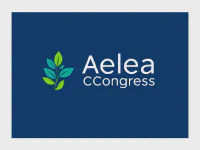Effective Strategies for Overcoming Opioid Addiction in Portland

Overcoming Opioid Addiction in Portland
Overcoming Opioid Addiction in Portland is a pressing issue that affects countless individuals and families in the community. The opioid epidemic has significantly impacted Portland, leading to increased rates of addiction, overdose, and mortality. However, with the right support, resources, and dedication, individuals can find their path to recovery. This article explores the various aspects of overcoming opioid addiction in Portland, including community support programs, treatment options, preventative measures, success stories, and ongoing policy advocacy.
The journey toward recovery from opioid addiction in Portland can be daunting, but it is not insurmountable. Numerous resources are available for those seeking help, including specialized rehabilitation facilities, outpatient programs, and counseling services. The unique combination of Portland's vibrant community and dedicated professionals creates an atmosphere conducive to healing and growth. By accessing these resources, individuals can begin to reclaim their lives and work towards a drug-free future.
One key aspect of Overcoming Opioid Addiction in Portland is the emphasis on community support programs. These programs play a vital role in providing the necessary emotional and practical support that individuals need during their recovery journey. Local support groups, such as Narcotics Anonymous and SMART Recovery, enable individuals to share their experiences and connect with others who are facing similar challenges. Additionally, community centers offer vital resources and a sense of belonging that can be vital in maintaining long-term sobriety.
Furthermore, education about opioid misuse and addiction is critical in preventing future cases and providing ongoing support for those already affected. Awareness campaigns, educational workshops, and community forums are instrumental in addressing the stigma surrounding addiction. By fostering open dialogue and understanding, the community can empower individuals seeking help and reinforce the message that recovery is possible.
Ultimately, Overcoming Opioid Addiction in Portland requires a multi-faceted approach that encompasses community support, effective treatment, and a commitment to prevention. It is essential for individuals to know that they are not alone in their struggles, and a plethora of resources are available to aid them on their journey to recovery. Together, we can work towards a healthier, addiction-free future for Portland and its residents.
For exceptional research and treatment options in addiction, many turn to the expertise offered by The Ohio State University.
Community Support Programs
Local support groups in Portland offer a lifeline for those grappling with opioid addiction. Programs like Narcotics Anonymous (NA) and Al-Anon cater to individuals as well as their families, creating a supportive environment for sharing experiences, struggles, and victories in recovery. These groups foster a sense of community, encouraging participants to inspire each other and celebrate their progress.
Community centers play an impactful role in the recovery process by providing accessible resources, education, and meeting spaces for support groups. They often organize events and workshops aimed at raising awareness about addiction and recovery options, ultimately helping individuals and families navigate the complex landscape of opioid addiction.
Moreover, resources tailored to families affected by addiction are crucial for nurturing a supportive environment. Family counseling services, educational resources, and workshops focused on communication and understanding can empower family members to support their loved ones on their recovery journeys. By addressing the needs of families, Portland’s community support programs aim to create a holistic approach to recovery.
Treatment Options
Portland boasts a variety of rehabilitation facilities that cater to both inpatient and outpatient needs. These facilities offer specialized programs tailored to individuals struggling with opioid addiction. From detoxification processes to ongoing therapy options, these programs are designed to help individuals overcome their dependencies and regain control of their lives. Many facilities also incorporate holistic approaches, recognizing the importance of treating the mind and body during recovery.
Medications play a vital role in the treatment of opioid addiction. Prescription medications such as methadone and buprenorphine can help alleviate withdrawal symptoms, making the recovery process more manageable. These medications, when used in conjunction with counseling and support, provide a comprehensive approach to overcoming the physical and psychological challenges of addiction.
Psychotherapy and counseling services are also essential components of recovery. In Portland, individuals can access various therapy modalities, including cognitive-behavioral therapy (CBT) and motivational interviewing. These therapeutic approaches help individuals identify their triggers, develop coping strategies, and foster a more positive mindset as they work towards recovery.
Preventative Measures
Education programs focusing on opioid misuse are vital in preventing addiction before it starts. Many organizations in Portland are dedicated to mentoring youth and raising awareness about the dangers of opioid misuse. Educational initiatives in schools and community centers teach individuals how to recognize addiction and encourage open conversations regarding drug safety and responsible use.
Community awareness campaigns also play a critical role in prevention efforts. By highlighting the signs of opioid misuse and addiction, these campaigns strive to reduce stigma and promote the message that help is available. Public service announcements, workshops, and community events can all contribute to fostering a more informed populace, ultimately helping to diminish opioid-related issues.
Healthcare providers have a unique role in prevention, as they are often the first point of contact for individuals in need of support. By prioritizing early intervention and screening, healthcare professionals can identify at-risk individuals and provide the necessary resources and referrals for treatment. Comprehensive training on addiction for healthcare providers ensures they have the tools to address opioid misuse effectively.
Success Stories
Personal accounts of recovery in Portland serve as powerful reminders that overcoming opioid addiction is possible. Many individuals have shared their stories of struggle and triumph, showcasing the impact of community support, dedicated treatment, and personal determination. These narratives not only inspire others but also emphasize the importance of seeking help in times of need.
Interviews with local advocates highlight the collective effort within Portland to combat the opioid crisis. These advocates, often individuals in recovery themselves, actively promote awareness and support initiatives geared towards addiction recovery. Their dedication to sharing their experiences plays a significant role in destigmatizing addiction and encouraging others to seek help.
Peer support programs are invaluable in the recovery journey. Many individuals benefit significantly from connecting with others who have faced similar struggles. Sharing experiences, challenges, and solutions fosters a sense of camaraderie and understanding, ultimately enhancing individual recovery progress. The power of peer support can often make a world of difference in the path to sobriety.
Policy and Advocacy
Current laws and regulations in Oregon surrounding opioid addiction aim to address the crisis through harm reduction strategies and increased access to treatment. Initiatives such as the Prescription Drug Monitoring Program (PDMP) help track prescription usage, while legislation to increase access to addiction services has gained momentum in recent years. Understanding these laws is critical for community members and individuals seeking assistance.
Advocacy groups working for change in Oregon focus on creating policies that address the root issues of opioid addiction. Organizations like the Oregon Recovery Network and the Addiction Recovery Division actively work to promote recovery-friendly policies and practices, pushing for comprehensive measures that prioritize treatment over punishment.
Community members can get involved in local policy initiatives through advocacy organizations or by participating in community meetings and forums discussing addiction-related issues. Volunteering or providing support for local initiatives can help amplify the call for change and ensure that the voices of those affected by addiction are heard in policy discussions.
